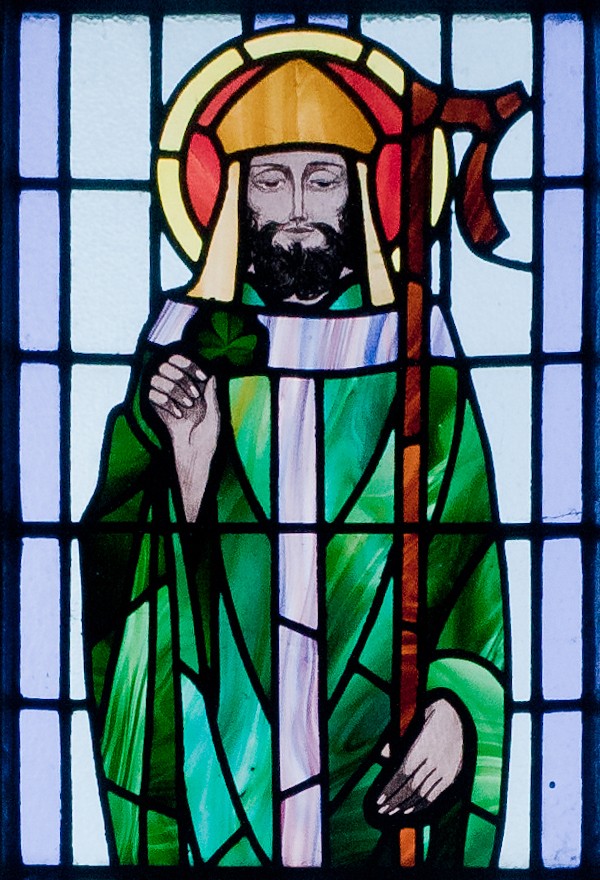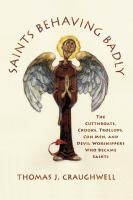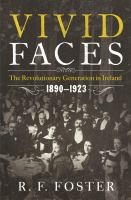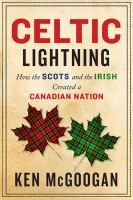
Happy St. Paddy’s Day! Saint Patrick was a 5th century missionary and is a patron saint of Ireland. As a teenager he was captured by Irish pirates and put into slavery, but he didn’t seem to hold a grudge – he came back to Ireland to convert the people to Christianity. March 17th is allegedly the day he died. He is famous for reportedly banishing all snakes from Ireland, and is said to have used the shamrock as a metaphor to teach the Holy Trinity. Here’s some suggested reading to celebrate Éire:
 Saints Behaving Badly: the cutthroats, crooks, trollops, con men, and devil-worshippers who became saints by Thomas J. Craughwell. If you thought saints were perfect, think again. Throughout the years, stories of these holy people become refined and sanitized until they’re, well…saintly. Craughwell points out that this isn’t quite the whole story. The history of these saints includes theft, rape, and murder, among other sins. Craughwell writes humorously about 32 men and women with colourful pasts, who nonetheless became known for their piety. And yes, Saint Patrick is in here – you’ll have to read it to find out why!
Saints Behaving Badly: the cutthroats, crooks, trollops, con men, and devil-worshippers who became saints by Thomas J. Craughwell. If you thought saints were perfect, think again. Throughout the years, stories of these holy people become refined and sanitized until they’re, well…saintly. Craughwell points out that this isn’t quite the whole story. The history of these saints includes theft, rape, and murder, among other sins. Craughwell writes humorously about 32 men and women with colourful pasts, who nonetheless became known for their piety. And yes, Saint Patrick is in here – you’ll have to read it to find out why!
 Vivid Faces: the revolutionary generation in Ireland, 1890-1923 by R.J. Foster. Ireland has a long history of fighting for independence. On January 1, 1801 it became part of the United Kingdom, ruled directly from London. Nonetheless, Irish rebels kept on with their cause. The Great Famine of the 1840s only added to the feelings of nationalism and the fight for “home rule”. Numerous historical events altered Ireland’s political landscape since then including the Easter Rising of 1916, when Irish republicans fought to end British rule and establish an Irish republic. Foster delves into the personal lives that shaped the turbulent times in this strongly researched and detailed book.
Vivid Faces: the revolutionary generation in Ireland, 1890-1923 by R.J. Foster. Ireland has a long history of fighting for independence. On January 1, 1801 it became part of the United Kingdom, ruled directly from London. Nonetheless, Irish rebels kept on with their cause. The Great Famine of the 1840s only added to the feelings of nationalism and the fight for “home rule”. Numerous historical events altered Ireland’s political landscape since then including the Easter Rising of 1916, when Irish republicans fought to end British rule and establish an Irish republic. Foster delves into the personal lives that shaped the turbulent times in this strongly researched and detailed book.
 Celtic Lightning: how the Scots and the Irish created a Canadian nation by Ken McGoogan. Did you know St. Patrick’s Day is an official holiday in Newfoundland? Over 4.5 million Canadians claim Irish ancestry, and the first official recording of Irish appearing here was in Newfoundland in the 1500s. McGoogan divides the book into five sections named after the values he feels the Scots and Irish brought to this country: independence, democracy, pluralism, audacity, and perseverence. The book describes the lives of thirty notable individuals who exemplify these qualities. This is a great read for Canadians who want to understand more of the cultural history and attitudes some of our ancestors carried and passed down to us.
Celtic Lightning: how the Scots and the Irish created a Canadian nation by Ken McGoogan. Did you know St. Patrick’s Day is an official holiday in Newfoundland? Over 4.5 million Canadians claim Irish ancestry, and the first official recording of Irish appearing here was in Newfoundland in the 1500s. McGoogan divides the book into five sections named after the values he feels the Scots and Irish brought to this country: independence, democracy, pluralism, audacity, and perseverence. The book describes the lives of thirty notable individuals who exemplify these qualities. This is a great read for Canadians who want to understand more of the cultural history and attitudes some of our ancestors carried and passed down to us.



 Celtic Lightning: how the Scots and the Irish created a Canadian nation by Ken McGoogan. Did you know St. Patrick’s Day is an official holiday in Newfoundland? Over 4.5 million Canadians claim Irish ancestry, and the first official recording of Irish appearing here was in Newfoundland in the 1500s. McGoogan divides the book into five sections named after the values he feels the Scots and Irish brought to this country: independence, democracy, pluralism, audacity, and perseverence. The book describes the lives of thirty notable individuals who exemplify these qualities. This is a great read for Canadians who want to understand more of the cultural history and attitudes some of our ancestors carried and passed down to us.
Celtic Lightning: how the Scots and the Irish created a Canadian nation by Ken McGoogan. Did you know St. Patrick’s Day is an official holiday in Newfoundland? Over 4.5 million Canadians claim Irish ancestry, and the first official recording of Irish appearing here was in Newfoundland in the 1500s. McGoogan divides the book into five sections named after the values he feels the Scots and Irish brought to this country: independence, democracy, pluralism, audacity, and perseverence. The book describes the lives of thirty notable individuals who exemplify these qualities. This is a great read for Canadians who want to understand more of the cultural history and attitudes some of our ancestors carried and passed down to us.


